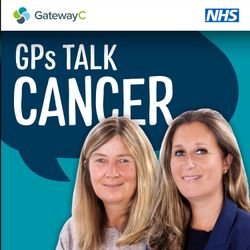Latest episode
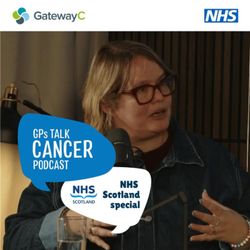
41. Bonus: Cancer in diverse populations within NHS Scotland
49:02||Ep. 41Sarah and Rebecca are joined by Dr Sal Peterson, Co-Clinical Lead for Scottish Primary Care Group, to explore the challenges of cancer diagnosis across Scotland, focusing on updated Scottish referral guidelines.The episode dives deep into cancer presentation in deprived Deep End practices and remote rural settings, discussing health inequalities, continuity of care, and practical safety-netting strategies. You’ll hear about the significance of context-specific assessment, shared decision making (realistic medicine), and how guideline changes are shaping early cancer detection—from chest X-ray protocols to rapid diagnostics and handling non-specific symptoms.If you loved this episode and would like to hear more like this, please send your review to the-christie.gatewayc@nhs.net and share the series with a colleague.GPs Talk Cancer is the podcast series from GatewayC. GatewayC is the free early cancer diagnosis resource funded by the NHS and is part of The Christie NHS Foundation Trust. View the full shownotes for this episode at Podcast - GatewayCProduced by GatewayC and Listening Dog Media.DISCLAIMER: We know this podcast might be of interest to anybody, however it is aimed at primary care health professionals. All patient cases are based on real stories from our clinical practice as GPs. They are fully anonymised with no identifiable patient data. All /featured statistics are accurate at the time of recording. All views expressed by guest speakers are their own.
More episodes
View all episodes
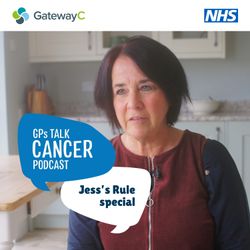
40. Bonus: Jess' Rule with Andrea Brady
34:40||Ep. 40GPs Rebecca Leon and Sarah Taylor are joined by Andrea Brady, Jess's mum, to discuss the origins and impact of Jess Rule "three strikes and we rethink" which urges GPs to fully reassess cases when a patient presents three times with persistent or worsening symptoms. This episode explores Jess's journey, the importance of continuity in care, and practical steps for primary care teams to improve early cancer diagnoses through reflection, review, and rethinking. The conversation highlights the power of listening to patients, safety netting, and working beyond the guidelines to save lives.If you loved this episode and would like to hear more like this, please send your review to the-christie.gatewayc@nhs.net and share the series with a colleague.GPs Talk Cancer is the podcast series from GatewayC. GatewayC is the free early cancer diagnosis resource funded by the NHS and is part of The Christie NHS Foundation Trust. View the full shownotes for this episode at Podcast - GatewayCProduced by GatewayC and Listening Dog Media.DISCLAIMER: We know this podcast might be of interest to anybody, however it is aimed at primary care health professionals. All patient cases are based on real stories from our clinical practice as GPs. They are fully anonymised with no identifiable patient data. All featured statistics are accurate at the time of recording. All views expressed by guest speakers are their own.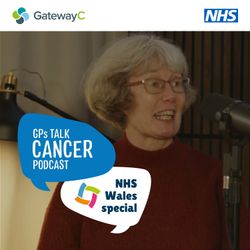
39. Bonus: Cancer in rural populations with NHS Wales
36:12||Ep. 39GPs Rebecca and Sarah are joined by Dr. Elaine Hampton, practicing GP and GP facilitator in cancer survival services in North Wales to explore the unique challenges of diagnosing cancer in Wales, with a focus on rural healthcare, deprivation, and the impact of travel on access to diagnostics and treatment. The discussion includes practical case studies, variations in diagnostic pathways, and the importance of supporting patients who face both logistical and social barriers to cancer care. They share insights on streamlining referrals, the benefits of “one-stop” clinics, and the critical role of GP support in improving cancer outcomes in less urban settings.If you loved this episode and would like to hear more like this, please send your review to the-christie.gatewayc@nhs.net and share the series with a colleague.GPs Talk Cancer is the podcast series from GatewayC. GatewayC is the free early cancer diagnosis resource funded by the NHS and is part of The Christie NHS Foundation Trust. View the full shownotes for this episode at Podcast - GatewayCProduced by GatewayC and Listening Dog Media.DISCLAIMER: We know this podcast might be of interest to anybody, however it is aimed at primary care health professionals. All patient cases are based on real stories from our clinicalpractice as GPs. They are fully anonymised with no identifiable patient data. All featured statistics are accurate at the time of recording. All views expressed by guest speakers are their own.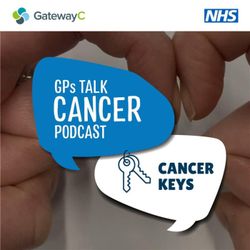
38. Bonus: Finger clubbing red flag symptom?
07:05||Ep. 38What is finger clubbing and why is it a red flag symptom for cancer? In this special bonus episode, Dr Rebecca Leon and Dr Sarah Taylor discuss this specific symptom and what to do if a patient presents with it. Read the cancer key in full here.GPs Talk Cancer is the podcast from GatewayC, the free early diagnosis resource funded by the NHS and part of The Christie NHS Foundation Trust. This episode is produced by GatewayC in collaboration with Listening Dog Media. DISCLAIMER: We know this podcast might be of interest to anybody, however it is aimed at primary care health professionals. All featured statistics are accurate at the time of recording. All views expressed by guest speakers are their own. Hosted on Acast. See acast.com/privacy for more information.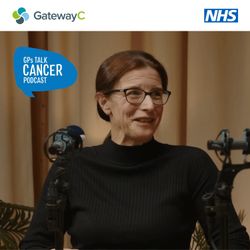
37. Sarcoma - "...is it waking you up at night?"
36:12||Ep. 37In this episode, consultant orthopaedic oncological surgeon at The Robert Jones and Agnes Hunt Orthopaedic Hospital, Miss Gill Cribb joins GPs Rebecca Leon and Dr. Sarah Taylor to discuss the challenges of diagnosing sarcoma in primary care. Expect practical insights around clinical features, referral pathways, and safety netting for soft tissue and bone tumours, plus key history and examination tips and the importance of reassessing persistent or atypical musculoskeletal complaints. Real case studies highlight common pitfalls, coding dilemmas and the vital role of early investigation in improving outcomes for patients.If you loved this episode and would like to hear more like this, please send your review to the-christie.gatewayc@nhs.net and share the series with a colleague.GPs Talk Cancer is the podcast series from GatewayC. GatewayC is the free early cancer diagnosis resource funded by the NHS and is part of The Christie NHS Foundation Trust. View the full shownotes for this episode at Podcast - GatewayCProduced by GatewayC and Listening Dog Media.DISCLAIMER: We know this podcast might be of interest to anybody, however it is aimed at primary care health professionals. All patient cases are based on real stories from our clinical practice as GPs. They are fully anonymised with no identifiable patient data. All featured statistics are accurate at the time of recording. All views expressed by guest speakers are their own.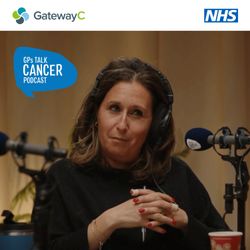
36. Upper GI cancer refresh - "with dysphagia it's always bread, rice and meat..."
41:17||Ep. 36GPs Rebecca and Sarah are joined by Dr. Jonathan Hoare, gastroenterologist at St Mary’s Hospital in London, to unpack the risk factors for upper GI cancers, including lifestyle, diet, and Helicobacter infection. Together, they share clinical stories highlighting alarm symptoms such as dysphagia, approaches to history taking, and discuss best practice for investigating new indigestion. The episode covers the long-term safety of PPIs, Barrett’s oesophagus management, and how empowering patients plays a vital role in cancer diagnosis and care.If you loved this episode and would like to hear more like this, please send your review to the-christie.gatewayc@nhs.net and share the series with a colleague.GPs Talk Cancer is the podcast series from GatewayC. GatewayC is the free early cancer diagnosis resource funded by the NHS and is part of The Christie NHS Foundation Trust. View the full shownotes for this episode at Podcast - GatewayCProduced by GatewayC and Listening Dog Media.DISCLAIMER: We know this podcast might be of interest to anybody, however it is aimed at primary care health professionals. All patient cases are based on real stories from our clinical practice as GPs. They are fully anonymised with no identifiable patient data. All featured statistics are accurate at the time of recording. All views expressed by guest speakers are their own.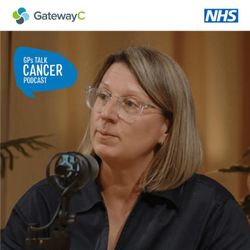
35. Genetics in primary care - "...we should be seeking advice about that family history"
50:53||Ep. 35Dr Jude Hayward, GP in Bradford and GPwSI in Genetics with the Yorkshire Regional Genetics Service, joins GPs Rebecca and Sarah to break down the essentials of genomics and genetic testing in primary care. This episode covers key terminology, like germline and somatic variants, the practical role of family history in identifying inherited cancer risk, when to refer to genetics services and the impact of targeted therapies in modern cancer care. Plus, learn how to support patients navigating genetic results and hear about evolving guidance and resources to empower GPs in personalised and precision medicine.If you loved this episode and would like to hear more like this, please send your review to the-christie.gatewayc@nhs.net and share the series with a colleague.GPs Talk Cancer is the podcast series from GatewayC. GatewayC is the free early cancer diagnosis resource funded by the NHS and is part of The Christie NHS Foundation Trust. View the full shownotes for this episode at Podcast - GatewayCProduced by GatewayC and Listening Dog Media.DISCLAIMER: We know this podcast might be of interest to anybody, however it is aimed at primary care health professionals. All patient cases are based on real stories from our clinical practice as GPs. They are fully anonymised with no identifiable patient data. All featured statistics are accurate at the time of recording. All views expressed by guest speakers are their own.
